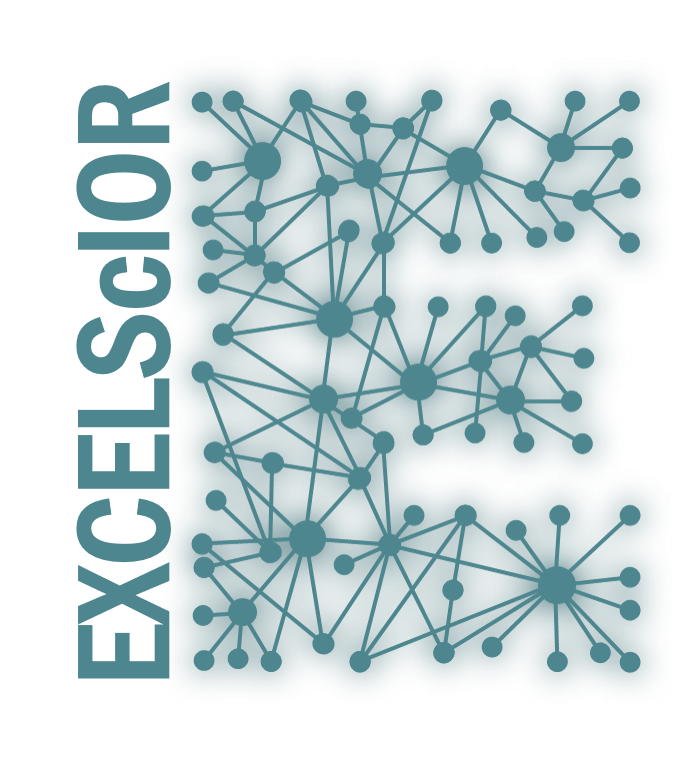Love Methods Week 2026

Why are Methods so Important?
– Methods are one of the most valuable outputs that researchers create. In many fields, others may be more likely to reuse and cite your methods than your data.
– Reproducibility starts with methods. If others don’t know what you did, they can’t reproduce your research.
– We can’t reuse open or FAIR data responsibly if we don’t know how they were generated. We need to share methods along with data to facilitate reuse.
Why Should I Join the “Love Methods Week”?
Learn how to share open, reusable methods. In addition to improving your own research, this will help others to reuse your methods and your data responsibly. By attending hands-on virtual workshops or webinars you’ll learn how to:
– Write and deposit a reusable, step-by-step protocol in a public repository
– Peer-review a method section in a manuscript
– Design an in vivo study protocol for the preclinic
– Pre-register a preclinical in in vivo or in vitro study
– Write up protocols for peer-reviewed publications that editors will like
– Share reproducible methods
– Cite your reusable step-by-step protocol, study design protocol or pre-registration in your research paper
– Use a lab notebook to produce a reproducible protocol
– Use reporting and PRO-MaP guidelines to improve your methods reporting
– Use research resource identifiers (RRIDs) to tell others exactly what materials you used
– Use methodological shortcut citations responsibly
– Cite your protocols and describe your methods when sharing your data. Apply and report methods to reduce experimental bias
Learning Objectives
– Develop and submit a detailed, reusable protocol to a public repository, enhancing the reproducibility and accessibility of your research methods.
– Critically evaluate and peer-review the methods section of a manuscript, ensuring methodological rigor and clarity.
– Design comprehensive in vivo study protocols for preclinical research, facilitating robust and ethical experimental practices.
– Pre-register preclinical in vivo or in vitro studies, promoting transparency and accountability in research planning.
– Compose protocols suitable for peer-reviewed publications, increasing the likelihood of acceptance by editors and contributing to scientific discourse.
– Share reproducible methods effectively, enabling other researchers to replicate and build upon your work.
– Accurately cite protocols, study designs, or pre-registrations in research papers, providing clear references and facilitating resource tracking.
– Utilize lab notebooks to create reproducible protocols, ensuring detailed documentation of experimental procedures.
– Apply reporting and PRO-MaP guidelines to enhance methods reporting, adhering to standardized practices for clarity and completeness.
– Implement Research Resource Identifiers (RRIDs) to specify materials used, allowing precise identification and reproducibility of research components.
– Use methodological shortcut citations responsibly, maintaining the integrity and traceability of referenced methods.
– Describe methods comprehensively when sharing data, ensuring that datasets are accompanied by sufficient methodological context for reuse.
PROGRAMME
LOCATION
Online
REGISTRATION INFORMATION
There are seven sessions with individual registration forms and links. Please use the corresponding links below to register for each of these sessions:
Rigorous experiments and clear communication with the Experimental Design Assistant
📅 20.01.2026
🔗 Registration linkHow to Peer Review the Methods Section of Articles in Biomedical Journals & Lessons for Authors
📅 20.01.2026
🔗 Registration linkFrom Lab Notes to Lab Protocols
📅 20.01.2026
🔗 Registration linkEvidence Synthesis: Types, Reproducibility, Best Practices and the Role of AI
📅 21.01.2026
🔗 Registration linkProtocols.io Hackathon: Get Your Protocol Ready to Publish
📅 21.01.2026
🔗 Registration linkMethods Mythbusting: Insights from Journal Editors and protocols.io
📅 22.01.2026
🔗 Registration linkReproducibility for Everyone (R4E)
📅 22.01.2026
🔗 Registration link
For all other sessions, please use the LMW general registration form: 🔗 Registration link
WORKSHOP COORDINATORS

René Bernard
Quality Manager | Project Manager – Value and Open Science (Cluster of Excellence NeuroCure, Charité – Universitätsmedizin Berlin)
Phone number:
+49 30 450 539 706
Email: rene.bernard@charite.de

Tracey Weissgerber
EXCELScIOR team leader – Centre for Innovative Biomedicine and Biotechnology, University of Coimbra
ORCID
Email:
tracey.weissgerber@uc.pt

